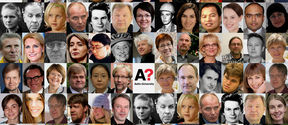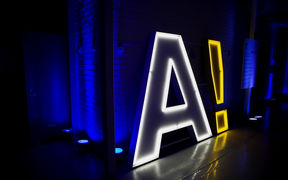Individual study arrangements are based on an assessment by a specialist. This means that you need a certificate from a doctor, psychologist or similar specialist explaining your need for individual study arrangements. If possible, the certificate should give concrete suggestions on the types of arrangements that would be useful to you.
Applications for arrangements due to dyslexia (e.g. additional time for an examination) must be supported by an assessment from a special education teacher, speech therapist, psychologist, or an appropriately qualified medical practitioner. If you had additional time or other individual study arrangements in the Finnish matriculation examination, you can also include the Matriculation Examination Board’s decision, provided it explains the individual arrangements made for you at the time and the health-related grounds for support measures.
The period of validity of the assessment documents is decided on a case-by-case basis depending on the degree of permanence of the disability, illness or learning difficulty. For dyslexia, the assessments must originate from when the applicant was 16 years of age or older. The assessment documents are not recorded in the university information systems, and details of the student’s health status are disclosed only to the person granting the right to individual study arrangements.
Under the Non-Discrimination Act (1325/2014) and the Aalto University General Regulations on Teaching and Studying (24 §), the university shall make due and appropriate adjustments to improve the student’s educational opportunities if the student, due a disability or other health condition, is unable to complete studies as provided in the curriculum, study unit or study unit implementation.
The measures for making individual study arrangements are in practice flexible, individual solutions to course teaching, examinations and working methods. The teacher assesses and defines the specific implementation based on the intended learning outcomes of the course. Any accommodated modes of completion must allow the student to achieve the intended learning outcomes set for the degree and course.
Individual study arrangements are based on an assessment by a specialist.
They may include:
• getting additional time for examinations
• taking examinations in a private space
• using a computer for examinations
• in course activities involving performing, recommending that the student present their work to a smaller group or only to the teacher.
• providing any written material in a larger font.
The individual arrangements are agreed in more detail in a meeting held with the school contact person.
The recommendation on individual study arrangements is given to the student after the meeting with the school contact person.
The recommendation states the individual study arrangements agreed upon and the period of validity of the recommendation. The recommendation does not include any health data as defined in the EU General Data Protection Regulation. The contact information of the person granting the right to the arrangements are included in the recommendation.
The recommendation is given to the student in three languages: Finnish, English and Swedish (Swedish excluded at the School of Business).
For the individual study arrangements to be taken into consideration on courses and in examinations, the student must present the recommendation on individual study arrangements to the teacher as early as possible, meaning when registering for a course or examination. This gives the teacher time to take such arrangements into consideration in the course implementation and discuss the needed arrangements with the student. Students will receive more detailed, practical instructions about the arrangements when the recommendation is prepared.
If you have a recommendation for individual study arrangements for examinations organized by:
- the Department of Mathematics and Systems Analysis (MS-xxxxx)
- the Department of Computer Science (CS-xxxxx)
- the Department of Industrial Engineering and Management (TU-xxxxx)
Please follow the instructions below or on the MyCourses course pages or request the exam arrangements you need no later than 14 days before the next exam week starts, according to the department’s instructions on this page:
https://www.aalto.fi/en/services/individual-exam-arrangements
If an examination of School of Business is organized on campus:
Please contact address exams-biz@aalto.fi at the beginning of the course or when you are registering for a re-examination (two weeks before the exam at the latest). Mention the examinations you are taking (course name and examination date) and the individual arrangements you need. Please also remember to contact this address about interim examinations and re-examinations.
If the examination is online in MyCourses:
Please show the recommendation to the teacher at the beginning of the course. Make sure you are given additional time for the online examination. Remember to inform the teacher also if you are taking an interim examination or re-examination.
If an examination of Aalto Open University is organized on campus:
Please send an email to avoin@aalto.fi at the beginning of the course or when you are registering for a re-examination (two weeks before the exam at the latest). Mention the examinations you are taking (course name and examination date) and the individual arrangements you need. Please also remember to contact Open University about interim examinations and re-examinations.
In all other cases, show the recommendation to the teacher at the beginning of the course and check with the teacher how to proceed with the exam arrangements.
The Learning Centre offers accessible course books to Aalto students in collaboration with Celia, which is a national library of accessible literature. Accessible course books are offered to students with a print disability (a difficulty or inability to read printed material due to a perceptual, physical, or visual impairment). The service is intended for students enrolled as attending students.
For more information on accessible course books, see here.
















